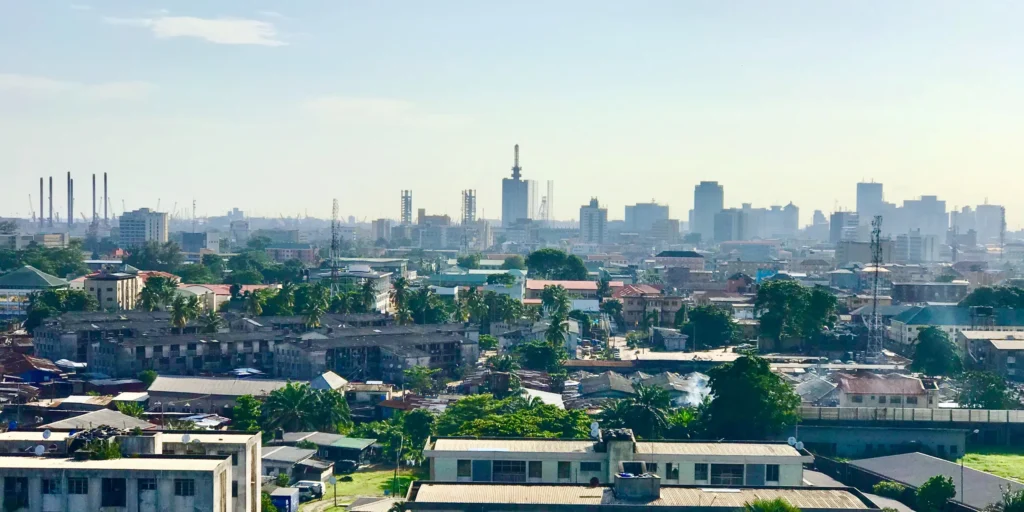Understanding Land Ownership in Nigeria: A Comprehensive Guide

Are you looking to understand land ownership in Nigeria and what you need to do and avoid? Then this guide is for you.
Land ownership in Nigeria is heavily influenced by various laws and governmental regulations. If you want to own land in Nigeria, it is important to understand what land ownership is and what it entails.
In this post we will provide a comprehensive guide to land ownership, what it means to own a land, and how the ownership is transferred. We will also have a quick look into the land tenure system, property rights, and all concepts relevant to prospective and potential landowners.
The Land Tenure System in Nigeria
The Land Use Act of 1978 governs the land tenure system in Nigeria. This ensures that land ownership is centralized and administrated under the state government.
Under this act, all land within a state is under the trust of the government, and the state Governor serves as the main custodian.
In a nutshell, the Land Use Act primarily streamlines land administration, ensuring land distribution is equitable and also promotes efficient land use.
To better understand land ownership in Nigeria, we need to explore the key features of the land tenure system in Nigeria.
Customary Tenure: This land ownership system centers on traditional practices and customs. It’s an ownership system where land and properties are collectively owned by communities, clans, or families and then passed down through generations like an heirloom.
You often see this tenure system in rural areas. It is also legally recognized under Nigerian law, given it does not violate the Land Use Act.
Statutory Tenure: Strictly this ownership system is rooted in legal documents issued by the Government. Documents like the C of O (Certificate of Occupancy). It gives the individual or company the right of occupancy of a land for a specific period typically 99 years.
Freehold vs. Leasehold: Another land ownership system is the freehold vs leasehold system. But it is worth noting that leasehold ownership is commonplace in Nigeria compared to freehold ownership due to the Land Use Act.
With the leasehold, you have the right to use the land for a determined period, and this right can be renewed upon expiration.
Now that we have explored the land tenure system, we should also explore the property rights in Nigeria.
Property Rights in Nigeria:
Property rights in Nigeria are deeply entrenched in the country’s constitution. It recognizes the right of an individual to acquire immovable properties and assume ownership.
However, based on the laws within the Land Use Act, these rights are restricted in a way, as an individual has the right of occupancy by the state but does not own the land outright.
That said, let’s explore the different types of property rights in Nigeria.
Right of Occupancy: This is the poster boy of property rights in Nigeria. It ensures that the holder has the right to assume ownership and use the land. The most important part is the state still has ultimate ownership of the land.
The right of occupancy can be statutory or customary. That means it can be issued by the state government or recognized based on local customs.
Certificate of Occupancy (C of O): This is the most obvious land document in Nigeria. It is a legal document issued by the state government, stamping an individual’s right to occupy and use land. It is a must-have document for property transactions and can be used for many formal purposes.
Governor’s Consent: This is more like a supplementary document. It is mostly important for subsequent transactions that involve land with existing C of O. For these types of transactions the Governor’s consent is obligatory. It ensures that all land transactions are within the boundaries of the Land Use Act.
Navigating the Land Ownership Process
Now let’s navigate through the land ownership process.
To navigate the land ownership process you must take several steps to ensure you avoid disputes or any financial loss.
Conduct Due Diligence: This is a crucial step to take before purchasing any land. Conducting due diligence helps you verify the authenticity of any property and related documents. It helps identify charges or any hidden disputes associated with the land.
Get Legal Assistance: It is important to employ the service of a qualified and competent real estate lawyer. They help untangle legal complexities related to the land ownership and purchase process.
Confirm Government Acquisition: Some properties may be under government territory, whether as acquisition or mapped for future projects. Verifying your land status is important to avoid buying land with encroachment.
Secure Deed of Assignment: When you are satisfied, you can proceed to purchase the Land. After that, ensure you secure a deed of assignment, it is crucial. It is a legal document that transfers the rights and interests of a property from the seller to the buyer.
Challenges and Potential Solutions in Land Ownership
Land ownership in Nigeria is not all smooth sailing. With overlapping interests of customs, government regulations, and statutory laws, meticulous deliberation and careful consideration are required to navigate these challenges.
Common challenges and potential solutions include:
Land Disputes: This is very common in Nigeria. Land disputes often arise due to conflicting claims between customary and statutory rights. Due diligence is required to navigate this challenge, and with the help of your lawyer, you should have nothing to worry about.
Fraudulent Transactions: It’s no secret that cases of land fraudulence are common in Nigeria. And as such document verification is important to help you avoid falling victim. Cross-examine documents with the right authorities like the land registry and surveyor general’s office.
Lack of Clear Documentation: Sounds unrealistic, but it’s a fact. Some rural areas in Nigeria base land ownership on verbal agreements or traditional practices. Generally, this can lead to disputes. To avoid this, you must secure ownership by formalizing any transaction with legal documentation, like C of O or Deed of Assignment.
Conclusion
If you are looking to invest in land and properties in Nigeria, then understanding land ownership in Nigeria is very crucial. The land tenure system in Nigeria finely blends statutory and customary practices and can be a lot to unpack. However, with the right planning and due diligence, coupled with the right legal guidance, you have nothing to worry about.
You can secure your investments as a prospective landowner and avoid unnecessary disputes by understanding property rights in Nigeria and following the right procedures. We hope you found this guide helpful.

Need help? Book a call at a time that suits you
We have dedicated investment advisers and realtors to help you make informed decisions with your real estate investment.